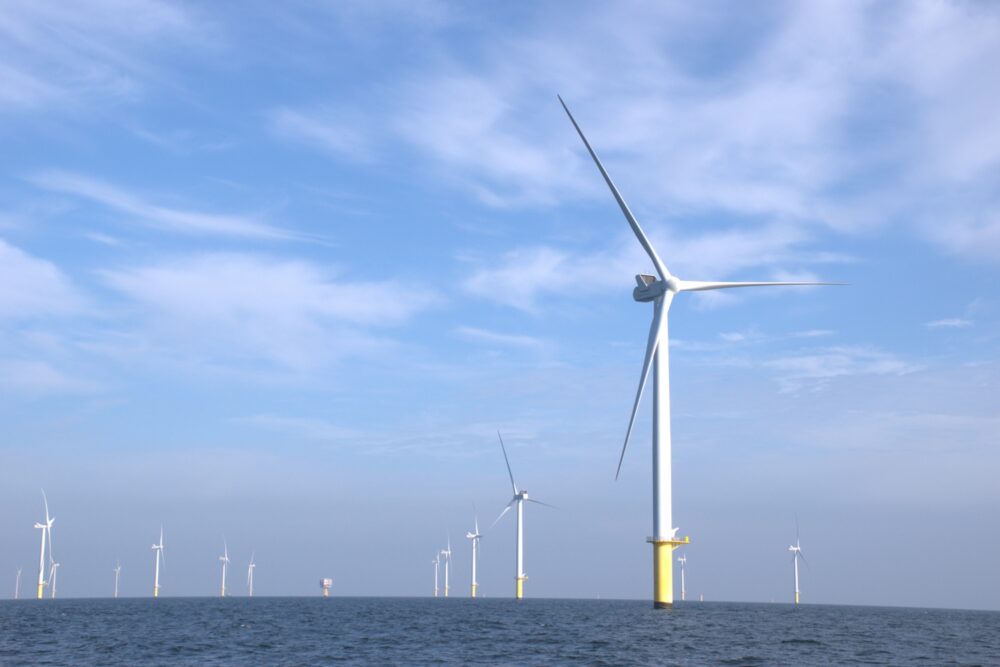The Cabinet wants to build more offshore wind farms, Climate and Energy Minister Rob Jetten announced in September. Scaling up renewable energy in the Netherlands is also necessary to combat climate change, according to the signatories of the letter. At the same time, it is crucial that nature in and above the North Sea be protected as much as possible. In this, besides industry and government, financiers of offshore wind farms also have an important role to play.

Nature requirements
The Dutch government is already setting increasingly stringent nature requirements within wind tenders. At present, the best available techniques (at that time) are applied as standard, with more attention being paid to nature and environmental impact than is legally required. This has been agreed in the North Sea Agreement.
Examples include quieter piling methods to protect marine mammals or the construction of oyster reefs in the wind farms. This relatively small additional investment in a wind farm makes a major contribution to the ecosystem. However, it is not yet certain that all future wind farms will have to meet these types of nature requirements: nature-enhancing and nature-protecting construction is not enshrined in legislation.
There is therefore a risk that future wind farms will be built on the basis of the highest possible financial return – at the expense of nature. The consequences of this for the energy transition could be significant. If policy goals for nature restoration in the North Sea are not met, the rollout of offshore wind may be delayed or even halted by legal proceedings based on existing nature legislation, which also puts investments in wind farms at risk.
Commitment wind industry
Much of the Dutch wind industry has made a public commitment to become a nature-inclusive sector by 2030: more ecological knowledge and innovation must prevent further loss of nature and strengthen marine life in and above the North Sea. The voluntary commitment of the sector is to be applauded, but for nature it is necessary that everyone within the wind sector makes an equal contribution.
Level playing field
That is why ABN Amro, ABP, ASN Bank, a.s.r., ING, MN, PME pension fund, Pensioenfonds Metaal & Techniek (PMT), Rabobank and Van Lanschot Kempen – together with Stichting De Noordzee and Natuur & Milieu – are calling on the government to make nature-enhancing and nature-preserving construction the minimum standard for all future wind farms in the North Sea through tenders. This will ensure that the entire offshore wind sector develops the knowledge and skills needed for a healthy North Sea nature and will create a level playing field for all investors and developers who want to realize wind farms at sea.
Call: minimum standard for all future offshore wind farms
That is why ABN AMRO Bank N.V., ABP, ASN Bank, a.s.r., ING, MN, PME pensioenfonds, Pensioenfonds Metaal & Techniek (PMT), Rabobank and Van Lanschot Kempen – together with Stichting De Noordzee and Natuur & Milieu – are calling on the government to make nature-enhancing and nature-preserving construction the minimum standard for all future wind farms in the North Sea through tenders. This will ensure that the entire offshore wind sector develops the knowledge and skills needed for healthy North Sea nature and will create a level playing field for all investors and developers wishing to build offshore wind farms.
Challenge
Biodiversity is under severe pressure worldwide. North Sea nature is also facing a major challenge. Human activities such as fishing, shipping and sand extraction have left the Netherlands’ largest nature area in a bad state. As a result, the ecosystem is impoverished and weakened. In the coming decades, the North Sea will become even busier, putting further pressure on nature. Therefore, it is essential that nature is protected and given the space to recover.